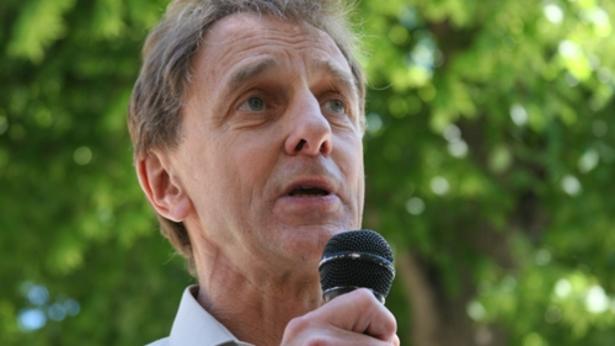Colin Blakemore Knighted in Queen's Birthday Honours List
Tue, 17 June 2014
Category: Media: conferences and press
Prof Colin Blakemore was among those knighted in the Queen's Birthday Honours List. Sir Colin was recognized ‘for services to scientific research, policy and outreach’.

Colin Blakemore spoke out about the importance of animal research at the Pro-Test rally in June 2006
Prof Colin Blakemore was among those knighted in the Queen's Birthday Honours List. Sir Colin was recognized ‘for services to scientific research, policy and outreach’.
In 2007, newspapers reported that Prof Blakemore, who had then retired as Chief Executive of the Medical Research Council, had been refused a knighthood as a result of "his outspoken support for animal experiments", despite being nominated at least five times. This made him the first outgoing Chief Executive of the MRC to leave his post without being honoured.
Sir Colin Blakemore, Professor of Neuroscience and Philosophy at the University of London and Emeritus Professor of Neuroscience at the University of Oxford, used animals in his ground-breaking research in vision and brain development. However, his research in feline models in the 1980s made him a target of hate for many animal rights activists. According to a Guardian article from 2003, he had "endured assaults by masked terrorists, bombs sent to his children, letters laced with razor blades ... and more than a decade of attacks and abuse by animal rights campaigners." Yet Sir Colin continued to speak out in support of animal research, justifying his work to journalists, politicians and anyone who would listen.
It is a testament to his hard work and dedication, both to science and science communication, that he has now been knighted.
Sir Colin said:
‘Life has its ups and downs: this is definitely an up! Being a scientist is a delight, but also a privilege. The progress of science depends on the confidence of the public and politicians, and I’ve always believed that scientists have an obligation to share their excitement, their knowledge and also their concerns with the whole of society. Scientists must be prepared to engage in debate and dialogue, even on difficult and challenging issues, if we are to maintain the trust of society and the support of government. I’m especially pleased, then, that this honour has recognised my efforts to contribute to the dialogue between science and society. I hope that it will be seen as recognition for the efforts of all those scientists who devote time and energy to public communication.’
